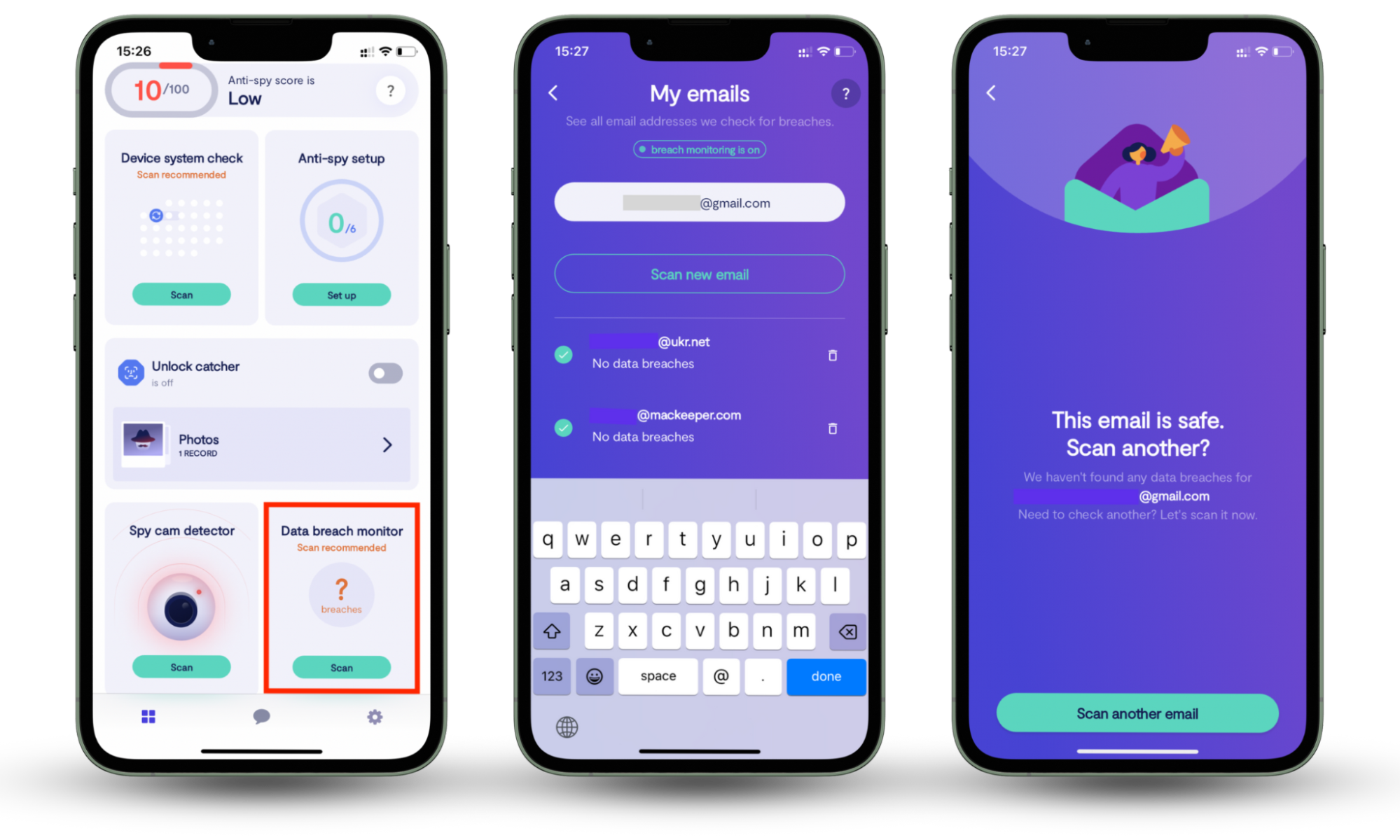Table of contents
- Why using public Wi-Fi connections may be dangerous?
- Risks of using public Wi-Fi
- The simple mechanics behind Wi-Fi sniffing
- How to stay safe on public Wi-Fi
- Conclusion
Why using public Wi-Fi connections may be dangerous?
Lots of us use free public Wi-Fi every day. Often, we’re in situations where public Wi-Fi is the only option if we need to get online quickly. But these connections aren’t always what they seem. Public Wi-Fi hotspots are easy targets for hackers and cybercriminals who can use them to invade your privacy and steal your data.
While public Wi-Fi has become more common, the ways cybercriminals exploit these networks have evolved. Today’s attacks often focus on manipulating the network itself rather than directly reading data. Fake hotspots, malicious redirects, and session hijacking are now among the most common threats. This makes public Wi-Fi risky even when everything appears normal on the surface.
Using public Wi-Fi connections can be dangerous because hackers can intercept the information you transmit via an unprotected connection.
This gives them the opportunity to steal your data. Here’s why you’re vulnerable to data breaches when you use public Wi-Fi hotspots:
- No or weak password protection to connect to the network, meaning that anyone can use the hotspot—after all, the more people who use it, the higher the chance that someone is a hacker
- Misconfigured Wi-Fi routers or outdated router software, meaning that there might not be the security settings you’re used to at home
- Users who don’t take good security precautions—maybe you reuse passwords or do your online banking when you’re using a free Wi-Fi hotspot
If you use public Wi-Fi connections, you’re not alone. The risk increases significantly when users assume that public Wi-Fi is “safe enough” for quick tasks. Cybercriminals rely on this false sense of security, knowing that people are more likely to reuse passwords, stay logged in to accounts, or ignore browser warnings when they’re in a hurry.
A majority of users report that they log in to personal emails or social media accounts on public Wi-Fi networks—and a quarter say that they’ve done online banking or accessed other financial information.
Despite increased awareness of cybersecurity risks, many users still underestimate how vulnerable public networks are. Security researchers consistently warn that attackers target busy public locations like cafés, airports, and hotels because users are distracted and less cautious. As public Wi-Fi usage grows, so does the incentive for cybercriminals to exploit it.
But the dangers of using public Wi-Fi are very real. Let’s look at what you risk by connecting to a free public Wi-Fi network.
Risks of using public Wi-Fi
The main dangers of unsecured Wi-Fi are data breaches and malware infections.
Using public Wi-Fi safely is essential to avoid a data breach, which happens when hackers illegally access private information.
Data breaches can affect any kind of information you store on your device. If you don’t know how to safely use public Wi-Fi, cybercriminals can steal your photos, videos, documents, and contacts among others.
Cybercriminals can also use public Wi-Fi hotspots to steal people’s credit card information and commit financial fraud. If they gather enough information about you, hackers can apply for loans, withdraw money, and make purchases in your name—and with your money.
Public Wi-Fi threats have evolved beyond simple data interception. Many modern attacks involve fake or “evil twin” hotspots that imitate legitimate networks to trick users into connecting. Others rely on man-in-the-middle techniques to hijack active sessions or inject malicious content. These attacks can happen silently, without triggering obvious security warnings.
Using public Wi-Fi also makes you an easy target for browser hijackers—who distribute malware to unsuspecting web surfers. Maybe you’re just opening a news website when a pop-up ad appears on the screen. Accidentally clicking on it can install malware onto your device.
If you don’t know how to use public Wi-Fi safely, you might quickly find yourself in trouble. To avoid this, you should always keep your guard up and make sure you’ve got reliable security apps installed on your devices.
Clario Anti Spy can help you here. Whether you use iOS or an Android device, it can help reduce the risk of falling victim to threats. If you’re worried about a data breach, the Data Breach Monitor will scan to see if your email address has been compromised. If your details have been involved in a data breach, you can take action to fix the issue.
Data Breach Monitor will automatically monitor your email addresses 24/7.
How to stay safe with Clario Anti Spy’s data breach monitor:
- Download Clario Anti Spy and follow the on-screen instructions to sign up. Then open the app and tap Scan under Data Breach Monitor.
- Check to see if there are any data breaches for your email address. If there are, follow the on-screen instructions to find out more details.
- If you have multiple email addresses, enter the next one and tap Scan another email.

The simple mechanics behind Wi-Fi sniffing
We’ve talked about the dangers of public Wi-Fi, and I’ve explained that hackers can get into your data when you’re using a secured Wi-Fi hotspot. But how do they do that?
Packet sniffing or eavesdropping is the illegal monitoring of data transmitted between devices.
Hackers use something called a sniffer. This is either hardware or software that intercepts data over the network, and decodes it. Wi-Fi sniffers have lots of legitimate uses too—they can help detect network problems, monitor any misuse of the network, and even help stop attacks if they’re being used correctly.
Nota bene
While most websites now use HTTPS encryption, this doesn’t eliminate all public Wi-Fi risks. Attackers may still see metadata, hijack login sessions, or redirect traffic before encryption fully protects the connection. This is why cybersecurity professionals treat public Wi-Fi as an untrusted environment—even when websites display a lock icon.
But, of course, hackers can use Wi-Fi sniffers for malicious purposes too.
Hackers don’t need to be amazing codebreakers to intercept or steal personal data on public Wi-Fi. Just having the right gear is enough. The secret ingredient to every hacker’s success is the unsuspecting and careless user.
Integrity & manipulation risk
In some cases, attackers don’t just steal data—they alter it. Messages, downloads, or updates sent over compromised networks can be modified in transit, potentially leading to misinformation, corrupted files, or hidden malware installations without the user realizing it.
Internet users without Wi-Fi hotspot protection risk not only losing critical information but also having their information modified. For example, your business partner might receive your message after it has been altered by cybercriminals to serve their nefarious purposes.
So, now you know about Wi-Fi sniffing, ask yourself: is it safe to use public Wi-Fi?
But sometimes there’s no choice. What should you do if you need to use a public Wi-Fi hotspot? Don’t worry; there are some things you can do to stay alert and leave these cybercriminals empty-handed.
How to stay safe on public Wi-Fi
Fortunately, if you know how to avoid being hacked on public Wi-Fi, you can reduce the dangers.
Here’s what you need to do if you want to minimize public Wi-Fi security risks:
- Use a VPN: A Virtual Private Network (VPN) app will hide your IP address and encrypt the information you send online, meaning that third parties can’t see what you’re doing.
- Turn off Bluetooth and file-sharing: If you have Bluetooth and file-sharing settings turned on, you should disable them when you’re on public networks—or anywhere that you’re around lots of people who might try to send you malicious files.
- Don’t open or send sensitive data: Avoid online banking, shopping, and working remotely when connecting to public Wi-Fi—and don’t use any application that may contain sensitive data. The sad truth is many applications have security flaws, so anything you do within them may be visible to hackers.
- Use an antivirus: Antivirus software won’t save your personal data from interception, but it can protect your device from various malware. This includes the malicious programs hackers secretly send to your phone or laptop on public Wi-Fi.
- Enable firewall: A firewall analyzes the data traffic and protects your device from unauthorized access—so enabling a firewall can save your device from suspicious data. So whenever you connect to public Wi-Fi, don’t forget to turn the protection on.
- Disable automatic Wi-Fi connections: Devices often reconnect to known networks automatically, including malicious hotspots that mimic trusted names.
- Confirm the network name with staff: In cafés, hotels, or airports, attackers often create look-alike networks to lure users.
- Use HTTPS-only mode in your browser: This reduces exposure to downgrade attacks and malicious redirects.
- Log out of accounts when finished: Ending sessions limits damage if session cookies are compromised.
That’s it. Now, you can browse the web without worrying about public Wi-Fi safety.
Insight
High-traffic public Wi-Fi networks are especially attractive to attackers because malicious activity blends in more easily. The more people connected, the harder it is to detect suspicious behavior. This makes busy locations some of the riskiest places to connect without proper precautions.
Conclusion
So, is it safe to use public Wi-Fi?
We didn’t mean to scare you, and of course, not every public Wi-Fi service leads to you getting hacked. But it’s good to know the dangers and be prepared.
And, of course, if you suspect that you’ve been the victim of a data breach, Clario Anti Spy can help. The app’s Data Breach Monitor can scan databases of password leaks and other data breaches to see if your personal details have been compromised, allowing you to take action and improve your personal safety.


